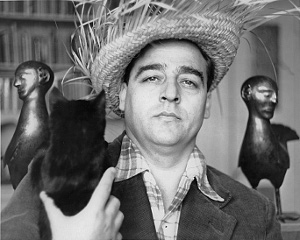A Quote by Thomas Hobbes
But his Lordship [tells]us that God is wholly here, and wholly there, and wholly every where; because he has no parts. I cannot comprehend nor conceive this. For methinks it implies also that the whole world is also in the whole God, and in every part of God. Norcan I find anything of this in the Scripture. If I could find it there, I could believe it; and if I could find it in the public doctrine of the Church, I could easily abstain from contradicting it.
Related Quotes
The priest therefore saw what the anchorite could not. That God needs no witness. Neither to himself nor against. The truth is rather that if there were no God then there could be no witness for there could be no identity to the world but only each man's opinion of it. The priest saw that there is no man who is elect because there is no man who is not. To God every man is a heretic.
[Gandhi] said, "I want to find God, and because I want to find God, I have to find God along with other people. I don't believe I can find God alone. If I did, I would be running to the Himalayas to find God in some cave there. But since I believe that nobody can find God alone, I have to work with people. I have to take them with me. Alone I can't come to Him."
No, a true seeker, one who truly wished to find, could accept no doctrine. But the man who has found what he sought, such a man could approve of every doctrine, each and every one, every path, every goal; nothing separated him any longer from all those thousands of others who lived in the eternal, who breathed the Divine.
I should like to believe my people's religion, which was just what I could wish, but alas, it is impossible. I have really no religion, for my God, being a spirit shown merely by reason to exist, his properties utterly unknown, is no help to my life. I have nor the parson's comfortable doctrine that every good action has its reward, and every sin is forgiven. My whole religion is this: do every duty, and expect no reward for it, either here or hereafter.
It's not words, so much, just my mind going blank and thoughts reaching up up up, me wishing I could climb through the ceiling and over the stars until I can find God, really see God, and know once and for all that everything I've believed my whole life is true, and real. Or, not even everything. Not even half. Just the part about someone or something bigger than us who doesn't lose track. I want to believe the stories, that there really is someone who would search the whole mountainside just to find that one lost thing that he loves, and bring it home.
Infallible denotes the quality of never deceiving or misleading and so means wholly trustworthy and reliable; inerrant means wholly true. Scripture is termed infallible and inerrant to express the conviction that all its teaching is the utterance of God who cannot lie, whose word, once spoken, abides for ever, and that therefore it may be trusted implicitly.
I think, is wonderful about growing older, is appreciation for the miracle of existence, of life. I thank God every day. I also do believe that belief and imagination manifests reality. And therefore, even though it took twenty-five years, I did find the house, eventually, and the man I could live with.









































